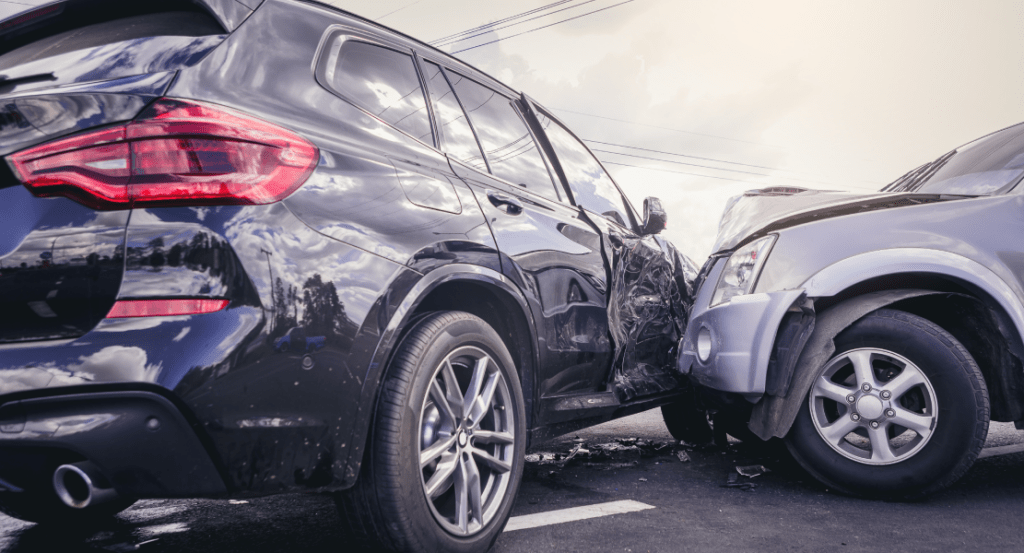
If you’ve been in a car accident, it can be overwhelming and confusing to know what to do next. To make sure you don’t miss any important steps, it’s important to consult an experienced Car Accident Lawyer. In this blog post, we will provide you with expert advice from a Car Accident Lawyer, outlining the top 10 questions you need to ask after a car accident. Read on to find out what questions you should be asking and why they are so important.
1) How severe are my injuries?
It is important to assess the severity of your injuries after a car accident. In order to do this, it is highly recommended that you seek medical attention immediately following the accident. Your doctor can determine the full extent of any physical damage and provide you with the necessary treatment. Additionally, if your injuries are extensive, you may want to consult a personal injury lawyer who can provide advice on your legal options. A personal injury lawyer will also be able to help you build a strong case for any damages and compensation you may be entitled to. It is important to note that even if you feel okay after an accident, you should still seek medical attention as some injuries may not be apparent right away.
2) How will I pay for my medical treatment?
If you’ve been in a car accident, the medical costs can quickly add up. Depending on the severity of your injuries, you may need hospitalization, surgery, physical therapy, and more. Paying for all of these services can be daunting without financial assistance. Your Personal Injury Lawyer can help you understand all of the options available to you, from health insurance to potential compensation from the other driver.
In some cases, an auto insurance policy may provide coverage for medical costs incurred due to an accident. Depending on the terms of your policy, it may also provide coverage for lost wages due to missed work. However, it’s important to remember that not all auto insurance policies are created equal. Be sure to read the fine print of your policy and consult with your Personal Injury Lawyer before making any decisions.
In addition to health insurance and auto insurance, you may be eligible for compensation from the other driver. Your Personal Injury Lawyer can help you assess your chances of successfully filing a lawsuit against the other driver, as well as negotiate a settlement with them or their insurance company. In some cases, this may provide sufficient funds to cover your medical expenses and lost wages.
No matter what form of payment you use for your medical treatment, be sure to keep records of all payments made and services received. This will be invaluable when filing a claim with your insurance company or seeking compensation from the other driver. Your Personal Injury Lawyer can guide you through this process and ensure that you get the full amount of compensation that you are owed.
3) How long will it take for me to recover?
Recovery from a car accident can take weeks, months, or even years depending on the severity of your injuries. It’s important to get the medical treatment you need in order to make a full recovery. You may have to go through physical therapy, occupational therapy, and other treatments depending on your specific needs. In some cases, you may require surgery or extensive rehab to regain your full range of motion and mobility. Depending on how severe your injuries are, recovery could be anywhere from a few days to several months or even years. Make sure to follow up with your doctor regularly and keep track of your medical records to determine the full extent of your recovery timeline. Additionally, you may be able to consult with a car accident lawyer for legal advice about what steps you should take in order to protect your rights and best interests after a car accident.
4) What if I can’t return to work?
If you are injured in a car accident and unable to return to work, you may be entitled to compensation for lost wages. The amount of compensation you can receive depends on a few factors, including the severity of your injury and how long it will take you to recover.
In some cases, you may be able to claim compensation for any income that you have already lost, as well as future income if you are unable to return to work for an extended period of time. Additionally, you may also be able to claim any additional expenses that you have incurred as a result of your injuries.
If you are unable to return to work after your car accident, it is important that you speak with an experienced car accident lawyer. They will be able to advise you on the best course of action and provide guidance throughout the claims process.
5) What are my legal options?
If you’ve been in a car accident, it’s important to know what legal options are available to you. Depending on the circumstances of the accident, there are several potential legal remedies you may be able to pursue.
If you have suffered an injury or property damage due to the negligence of another driver, you may be able to file a personal injury or property damage claim. These types of claims can help you receive compensation for medical expenses, lost wages, pain and suffering, and other damages.
In some cases, it may be possible to take legal action against the other driver’s insurance company if they have acted in bad faith. This could include failing to investigate your claim properly or providing you with an unreasonably low settlement offer.
You may also be able to bring a lawsuit against the other driver if they were at fault for the accident. In this case, you could seek financial compensation for your damages, including medical bills, property damage, and pain and suffering.
In addition to seeking compensation through legal action, it is also possible to negotiate with the other driver’s insurance company. This could result in an out-of-court settlement that would provide you with compensation without having to go through a lengthy trial process.
Ultimately, the best way to determine your legal options after a car accident is to speak with a qualified car accident lawyer. They can evaluate your case and help you understand your rights and potential legal remedies.
6) What if the other driver was at fault?
If the other driver was at fault in a car accident, you may be entitled to damages. Damages can include compensation for medical bills, lost wages, pain and suffering, and more. It is important to have an experienced car accident lawyer on your side when seeking these damages.
The first step is determining who was at fault in the accident. If the other driver was clearly responsible for the crash, you will need to gather evidence of their negligence. This may include pictures of the accident scene, witness statements, police reports, or even the other driver’s admission of guilt.
You will also need to prove that the other driver’s negligence caused your injuries. This can be done through medical records, which document your injuries and treatment. You should also keep track of any out-of-pocket expenses you incurred due to the accident, such as lost wages and medical bills.
Once the negligence of the other driver is established, your lawyer can negotiate with the insurance company for a fair settlement. The amount of damages you receive will depend on the severity of your injuries and other factors, such as how much insurance coverage is available.
In some cases, the insurance company may deny liability or refuse to pay a fair settlement. In this situation, your lawyer may advise you to file a lawsuit against the other driver. A successful lawsuit can result in compensation for your injuries and financial losses.
No matter what caused your car accident, it’s important to have an experienced attorney on your side. An experienced lawyer can help you build a strong case and pursue the compensation you deserve.
7) What if I was partly at fault?
It is important to understand that being partly at fault does not necessarily mean that you are unable to receive compensation for your injuries and losses. The law of comparative negligence is applied in many states to determine the amount of damages awarded in a personal injury claim. Under this rule, a person’s degree of fault is taken into consideration when determining the total amount of damages he or she is entitled to receive.
If you were partly at fault in an accident, the court will decide how much responsibility each party had in causing the accident. Depending on the outcome, you may still be able to recover some damages for your injuries and losses. It is important to consult with a personal injury attorney who is knowledgeable in the laws of your state so that you can understand the legal implications of your case and protect yourself accordingly.
8) What if there are no witnesses?
If you find yourself in a situation where there are no witnesses, it can be difficult to prove fault in a car accident. Without eyewitness testimony, you may need to rely on evidence collected at the scene of the accident, such as skid marks, broken glass, and other physical damage to the cars. Photos of the scene and measurements of skid marks can provide helpful evidence of the speed and angle of impact.
You may also be able to present circumstantial evidence in the form of witness statements from people who saw your car before or after the accident, or who heard about what happened from other people. If the other driver was seen driving recklessly or talking on their phone prior to the accident, these statements may be able to help build your case.
Finally, you can use your own testimony and experience to establish fault. You can describe what you were doing at the time of the accident, explain what happened, and identify any factors that led to the crash. It’s important to keep a clear record of all the information you have regarding the accident and contact a car accident lawyer as soon as possible. They can help you understand your legal options and assist you in recovering compensation for your injuries.
9) What if the other driver doesn’t have insurance?
If you are in a car accident and the other driver does not have insurance, it is important to take immediate action. First and foremost, seek medical attention for yourself or anyone else who was involved in the accident. The next step is to contact the police so they can conduct an investigation and file a report.
Depending on the circumstances, you may have legal recourse if the other driver was at fault and did not have insurance. In some states, you can file a claim with your own insurer if you have uninsured motorist coverage. If you do not have uninsured motorist coverage, you may be able to file a lawsuit against the other driver to seek compensation for damages.
It is important to contact an experienced car accident lawyer to ensure that your rights are protected and you receive the compensation you deserve. A lawyer can help you understand your legal options and the best way to proceed. They can also help negotiate a settlement or represent you in court if necessary.
10) How can I protect myself financially after a car accident?
It can be difficult to know how to protect yourself financially after a car accident, especially if you are dealing with medical bills, lost wages, and vehicle damage. However, there are steps you can take to help minimize your financial losses.
The first step is to contact your insurance company as soon as possible to report the accident and submit any necessary claims. It’s important to document all related expenses such as medical bills, rental car costs, and repairs. If your insurance company doesn’t cover the costs, you may need to pursue legal action against the other driver or their insurance company.
It’s also important to document the accident scene and collect information from the other driver including their name, contact information, and insurance information. Taking pictures of the scene and any visible damage can be helpful evidence if you need to pursue legal action. You may also want to consult with a car accident lawyer who can help guide you through the process and ensure that you get the compensation you deserve.
Finally, it’s important to stay organized throughout the process by keeping track of all communication, paperwork, and expenses related to the accident. Taking these steps can help you protect yourself financially after a car accident and get the compensation you need for your losses.




